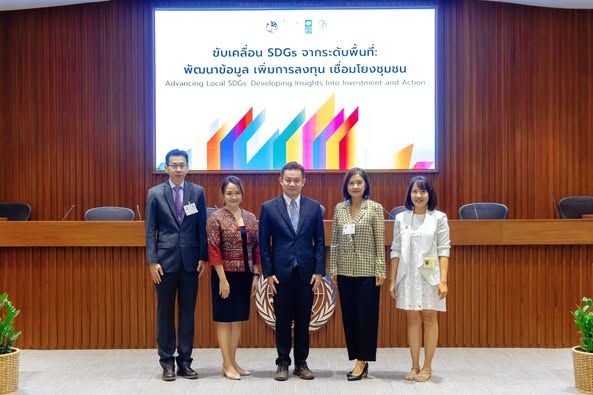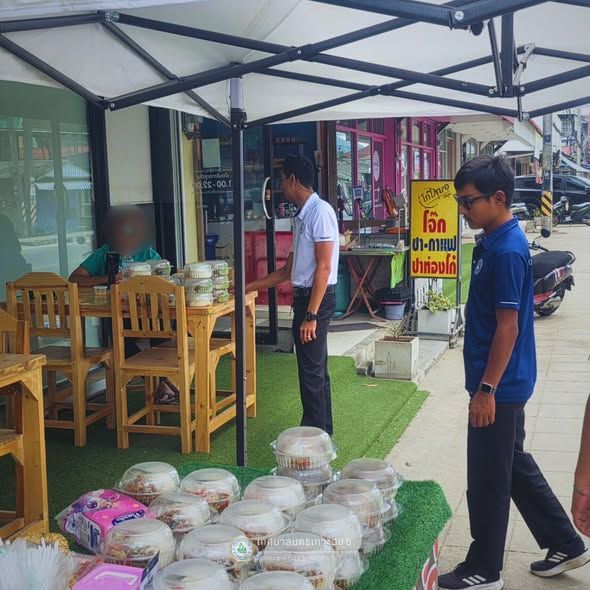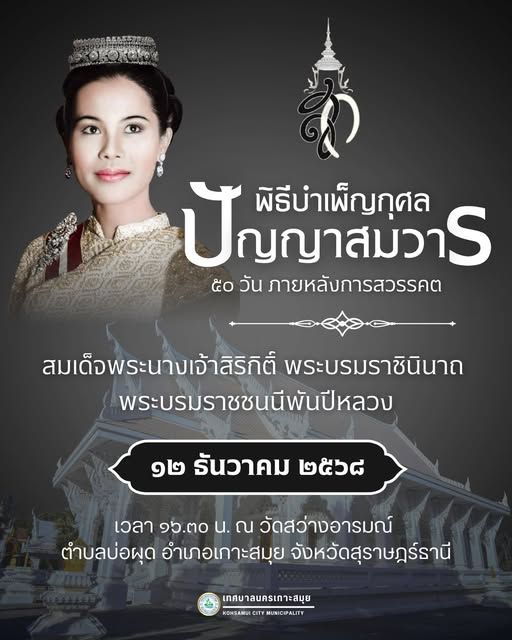Koh Samui City Municipality is making global waves at the UN Conference Center in Bangkok, showcasing their incredible progress in sustainable development and an innovative local reporting tool. Join Deputy Mayor Ms. Supinya Srithongkul and other leaders on August 20, 2025, to unite for a brighter, greener future!
KohSamui #SustainableDevelopment #UNConference #GlobalGoals #Thailand #Turistic #GreenFuture #LocalAction #Bangkok #TravelThailand
Background of the Joint SDG Fund Project
The Joint SDG Fund Project, titled “Driving Local Implementation for Sustainable Development Goals: From Mechanisms to Drivers,” is an initiative aimed at advancing the localization of the United Nations Sustainable Development Goals (SDGs) in Thailand. Taking place on August 20, 2025, at the United Nations Conference Center (UNCC) in Bangkok, the project brought together government officials, UN representatives, local administrators, and civil society stakeholders to advance SDG implementation strategies at the local level.
Key Participants and Event Structure
The event was chaired by Ms. Migella Philbray-Storre, United Nations Resident Coordinator in Thailand. Koh Samui City Municipality, represented by Deputy Mayor Ms. Supinya Srithongkul, joined a panel discussion alongside participants from the Ministry of Interior, local government leaders, committee members, and representatives from youth, ethnic groups, and communities of people with disabilities. The collaborative nature of the event highlighted the importance of multi-sectoral engagement in achieving sustainable development.
Focus on Voluntary Local SDG Reporting (VLR)
One major theme of the discussion was “Voluntary Local SDG Reporting,” a process through which local governments voluntarily assess and report their progress toward achieving the SDGs. Koh Samui City Municipality showcased its use of the Voluntary Local Review (VLR) tool, a framework designed to align local actions with global SDG targets. The panel explored experiences and strategies for linking local data collection and analysis with global monitoring and reporting mechanisms, reinforcing transparency and accountability in SDG localization.
Linking Local Data with Global Goals
The event emphasized the vital role of data in tracking SDG progress and ensuring that local initiatives align with international benchmarks. Participants discussed methods for gathering comprehensive local data, understanding community needs, and integrating key findings into broader national and global reporting structures. This approach supports evidence-based policymaking and highlights local innovations in areas such as waste management and sustainability practices.
Partnerships and Collaborative Approaches
Collaboration was a central theme throughout the forum, with presentations from UNDP, UN-Habitat, the Ministry of Interior, and other strategic partners. The panel provided a platform for sharing successful case studies and best practices from across Thailand, including lessons learned from 15 pilot provinces. These experiences are intended to inform the expansion of SDG implementation tools and methodologies to other regions, fostering a culture of shared learning and continuous improvement.
Community Involvement and Inclusion
The discussions highlighted the importance of inclusive participation in the SDG process. By welcoming youth, ethnic communities, and people with disabilities, the event ensured that diverse perspectives were considered in the development of local SDG strategies. These groups contributed to conversations about building sustainable communities and promoting social equity.
Tools and Mechanisms for Local SDG Monitoring
UNDP and UN-Habitat presented a suite of tools and monitoring mechanisms designed to support local governments in tracking SDG progress. These included frameworks for voluntary reviews, practical guidelines for data collection, and innovative approaches to local governance and sustainability. Such resources are critical for maintaining momentum and ensuring that local efforts contribute meaningfully to national and global SDG objectives.
Frequently Asked Questions
Frequently Asked Questions (FAQ)
How is Koh Samui City Municipality contributing to the implementation and reporting of the Sustainable Development Goals (SDGs)?
Koh Samui City Municipality is actively advancing the localization of the SDGs by participating in the Joint SDG Fund Project and engaging in Voluntary Local SDG Reporting (VLR). They use innovative reporting tools to align local actions with global SDG targets, showcase progress, and share best practices at national and international events such as the UN Conference Center in Bangkok.
What is Voluntary Local SDG Reporting (VLR) and why is it important?
Voluntary Local SDG Reporting (VLR) is a process where local governments voluntarily assess and publicly report their progress toward achieving the SDGs. It strengthens transparency, accountability, and helps integrate local data with global monitoring frameworks, ensuring local initiatives contribute effectively to national and international sustainable development agendas.
How does the Koh Samui initiative ensure inclusive participation in SDG processes?
The initiative places a strong emphasis on inclusivity by involving diverse groups such as youth, ethnic communities, and people with disabilities in discussions and strategy development. This approach guarantees that varied perspectives inform local SDG strategies, fostering social equity and building sustainable communities.




